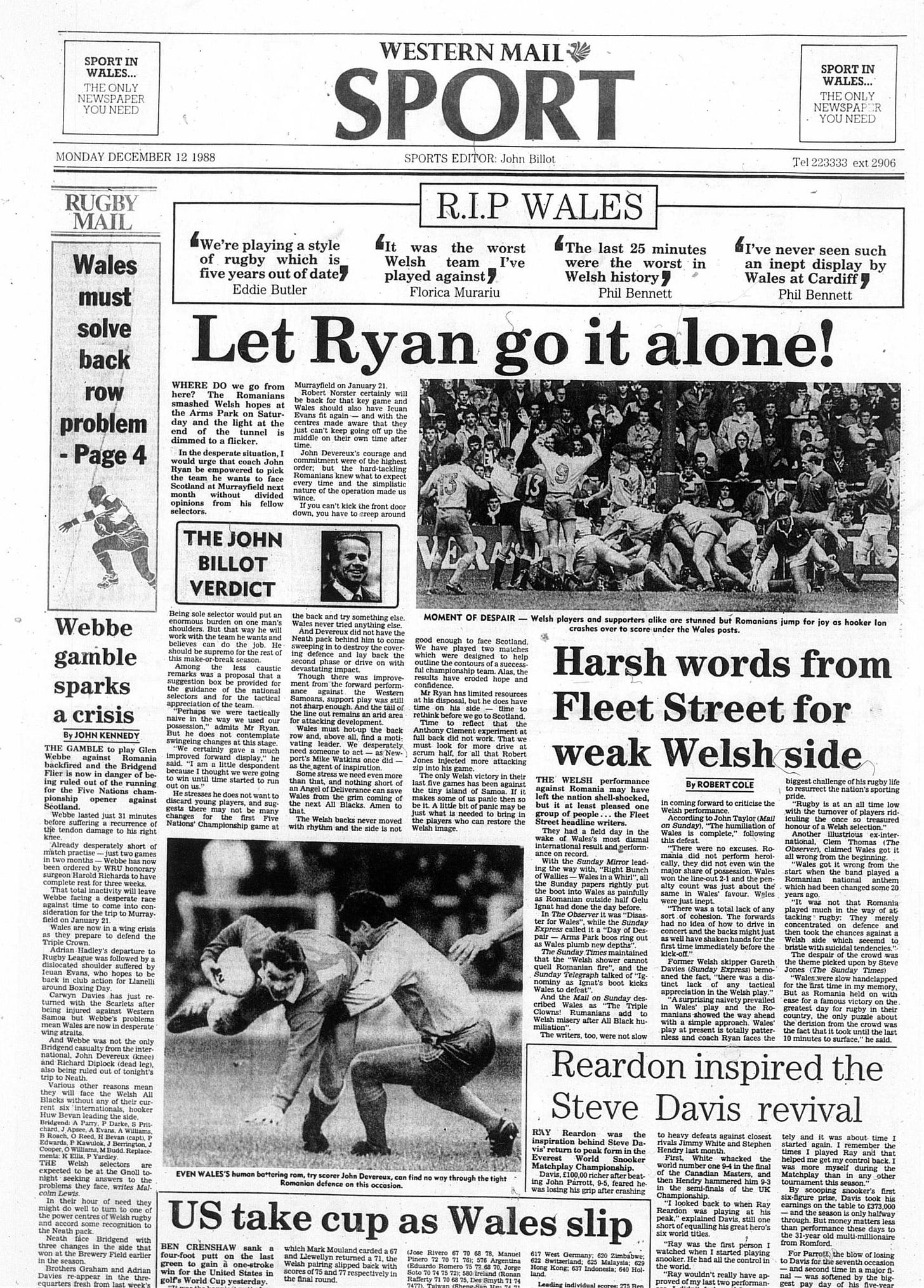Negativity is a two-way street
Warren Gatland has spoken publicly for the first time since leaving the Wales job
So, it's official.
It was actually Maggie Thatcher who was to blame for Welsh rugby's problems. And to think, she would have gotten away with it too if it wasn't for that meddling Warren Gatland.
When the Western Mail were scrambling for answers as to why Jiffy and co had just lost to Romania back in 1988, there was no mention of 10 Downing Street under the headline ‘RIP WALES’.
Little did they know it went all the way to the very top.
But, anyway, now that the real culprit has been rumbled, we can get on to more serious matters. Namely, the negative Welsh press - of which I am a card-carrying member.
As Gatland spoke publicly for the first time since leaving his post as Wales coach for the second time, the ‘negative’ narrative was once again brought to the table.
"I've felt a huge amount of negativity in the Welsh press and that just kept weighing down on me,” he told the Telegraph this week. “I just kept thinking, 'where is someone in my corner or someone fighting a little bit for me?'.”
This isn’t a new thing. The negativity within the Welsh game, specifically emanating from the media, has long been a part of Gatland’s defence during his time here.
Last year, Netflix - ignoring much of the actual story around the proposed strike action ahead of the England match - even dedicated part of their Six Nations documentary to Gatland having a Zoom call with his wife, Trudi, just to talk about them miserable sods in the press pack.
Now, those who know me personally are usually on the fence over whether I’m miserable or not. There are those who are in the camp that I most definitely am quite a morose individual, and then there are those who don’t want to hurt my feelings.
But even for me, this long-standing idea that the Welsh press - having witnessed 20 defeats out of 26 in Test level - are negative is honestly quite tiring.
In truth, that negativity has been a bit of a two-way street. Journalists shouldn’t be cheerleaders, nor should they be doom-mongers (the second-worst of the mongers, behind war but just ahead of fish).
They should report the facts, offer opinions based on insights gathered from a knowledge of the subject and reflect the current mood of the situation. So, in that sense, on the back of a 14-Test losing run underpinned by a dysfunctional system from top to bottom, some of the pieces might not have been side-splitting.
But what they’ve always strived to be is fair.





